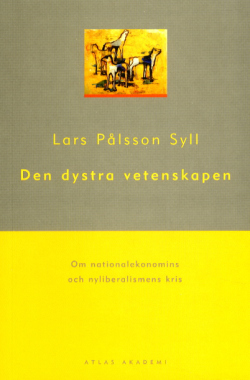From Lars Syll Oxford professor Simon Wren-Lewis isn’t pleased with heterodox attacks on mainstream economics. One of the reasons is that he doesn’t share the heterodox view that mainstream economics and neoliberal ideas are highly linked. In a post on his blog, Wren-Lewis defends the mainstream economics establishment against critique waged against it by Phil Mirowski: Mirowski overestimates the extent to which neoliberal ideas have become “embedded in economic theory”, and underestimates the power that economic theory and evidence can have over even those academic economists who might have a neoliberal disposition. If the tide of neoliberal thought is going to be turned back, economics is going to be important in making that happen. Wren-Lewis admits that “Philip Mirowski is a historian who has written a great deal about both the history of economics as a discipline and about neoliberalism” and that Mirowski “knows much more about the history of both subjects than I [W-L] do.” Fair enough, but there are simple remedies for the lack of knowledge. Read this essay, where yours truly try to further analyze — much inspired by the works of Amartya Sen — what kind of philosophical-ideological-political-economic doctrine neoliberalism is, and why it so often comes natural for mainstream economists to embrace neoliberal ideals.
Topics:
Editor considers the following as important: Uncategorized
This could be interesting, too:
tom writes The Ukraine war and Europe’s deepening march of folly
Stavros Mavroudeas writes CfP of Marxist Macroeconomic Modelling workgroup – 18th WAPE Forum, Istanbul August 6-8, 2025
Lars Pålsson Syll writes The pretence-of-knowledge syndrome
Dean Baker writes Crypto and Donald Trump’s strategic baseball card reserve
from Lars Syll
Oxford professor Simon Wren-Lewis isn’t pleased with heterodox attacks on mainstream economics. One of the reasons is that he doesn’t share the heterodox view that mainstream economics and neoliberal ideas are highly linked.
In a post on his blog, Wren-Lewis defends the mainstream economics establishment against critique waged against it by Phil Mirowski:
Mirowski overestimates the extent to which neoliberal ideas have become “embedded in economic theory”, and underestimates the power that economic theory and evidence can have over even those academic economists who might have a neoliberal disposition. If the tide of neoliberal thought is going to be turned back, economics is going to be important in making that happen.
Wren-Lewis admits that “Philip Mirowski is a historian who has written a great deal about both the history of economics as a discipline and about neoliberalism” and that Mirowski “knows much more about the history of both subjects than I [W-L] do.”
 Fair enough, but there are simple remedies for the lack of knowledge.
Fair enough, but there are simple remedies for the lack of knowledge.
Read this essay, where yours truly try to further analyze — much inspired by the works of Amartya Sen — what kind of philosophical-ideological-political-economic doctrine neoliberalism is, and why it so often comes natural for mainstream economists to embrace neoliberal ideals.
Or maybe — if your Swedish isn’t too rusty … — you could take part of the book-length argumentation in Den dystra vetenskapen (‘The Dismal Science,’ Atlas 2001) for why there has been such a deep and long-standing connection between the dismal science and different varieties of neoliberalism.
